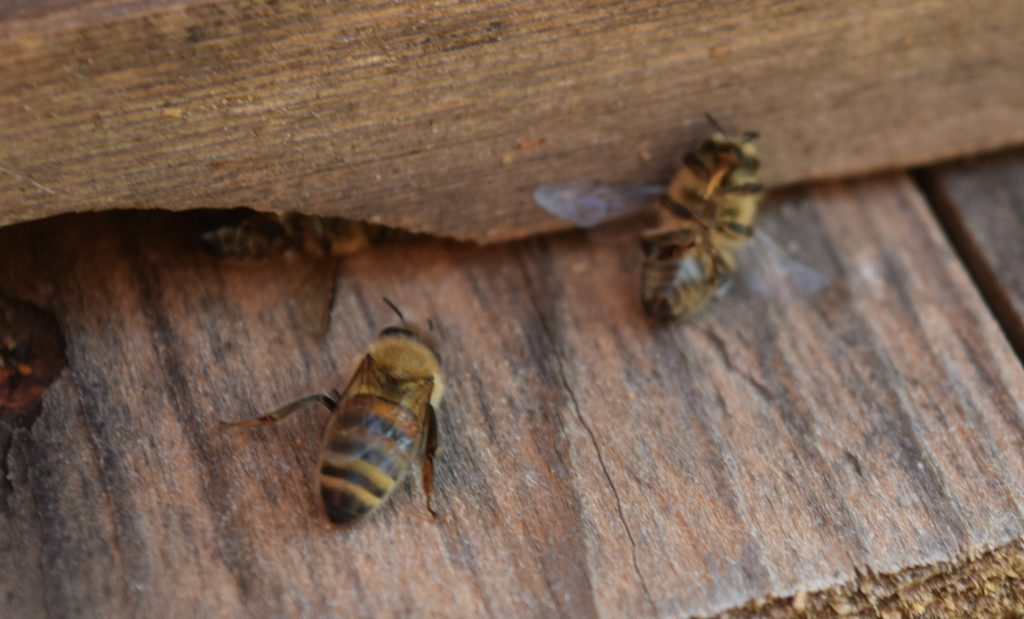Quite a storm last night but my hive survived. I cannot speak for the bees inside it as it is too cold to open it up. It is tempting to just lift the lid and have a look but it is not a good idea.
If they are all well in there and in a state of dormancy then me lifting the lid will alert them to a threat and they will wake from dormancy and this takes energy and disrupts them. Best not to.
If they are not well in there then what is the point of lifting the lid apart from worrying me as to what I did wrong and why all is not well. Best leave it as it is.
So the conclusion I come to is that I will leave it alone and just hope all is well.

What I have noticed is that there are a few dead bees outside the hive. This is not something that alarms me. Over the winter the winter workers will die off a few at a time and the housekeeping bees will remove them from the hive. Seeing a few dead bees outside the hive indicates to me that the housekeeping is still going on. The picture shows one bee returning from a cleansing flight and a couple of dead workers. All quite normal.
It never fails to fascinate me as to how the bees form such a well organised social colony. If you want to learn about bees then we do still have a few places on our Bee Beginners Course starting in February. You can do the course even if you do not wish to keep bees.
Whilst I have your attention - and if you have read this far then I guess you are interested - what about the Asian Hornet?
Well this is not a problem that has gone away. Also this is not just a problem for beekeepers. When the Asian Hornet has eaten our bees it will go for other flying insects. Already in Spain there are signs that the number of flying insects is decreasing and this is affecting the insectivorous bird population.
Aware of this we are organising an Asian Hornet Awareness Session at Sunninghill School in Dorchester on Sunday 18th February from 2:00 to 5:00pm. Mark White will be updating us on where we are now and what preparations we should be making for the new year. Then after a refreshment break we have Pollenize talking to us about new technological approaches to combating the Asian Hornet. This is an ideal opportunity to update your knowledge on the threat and also to meet up with others of a like mind.
This event is not just for beekeepers - it is for anyone who has an interest in the countryside - whether at play or at work.

